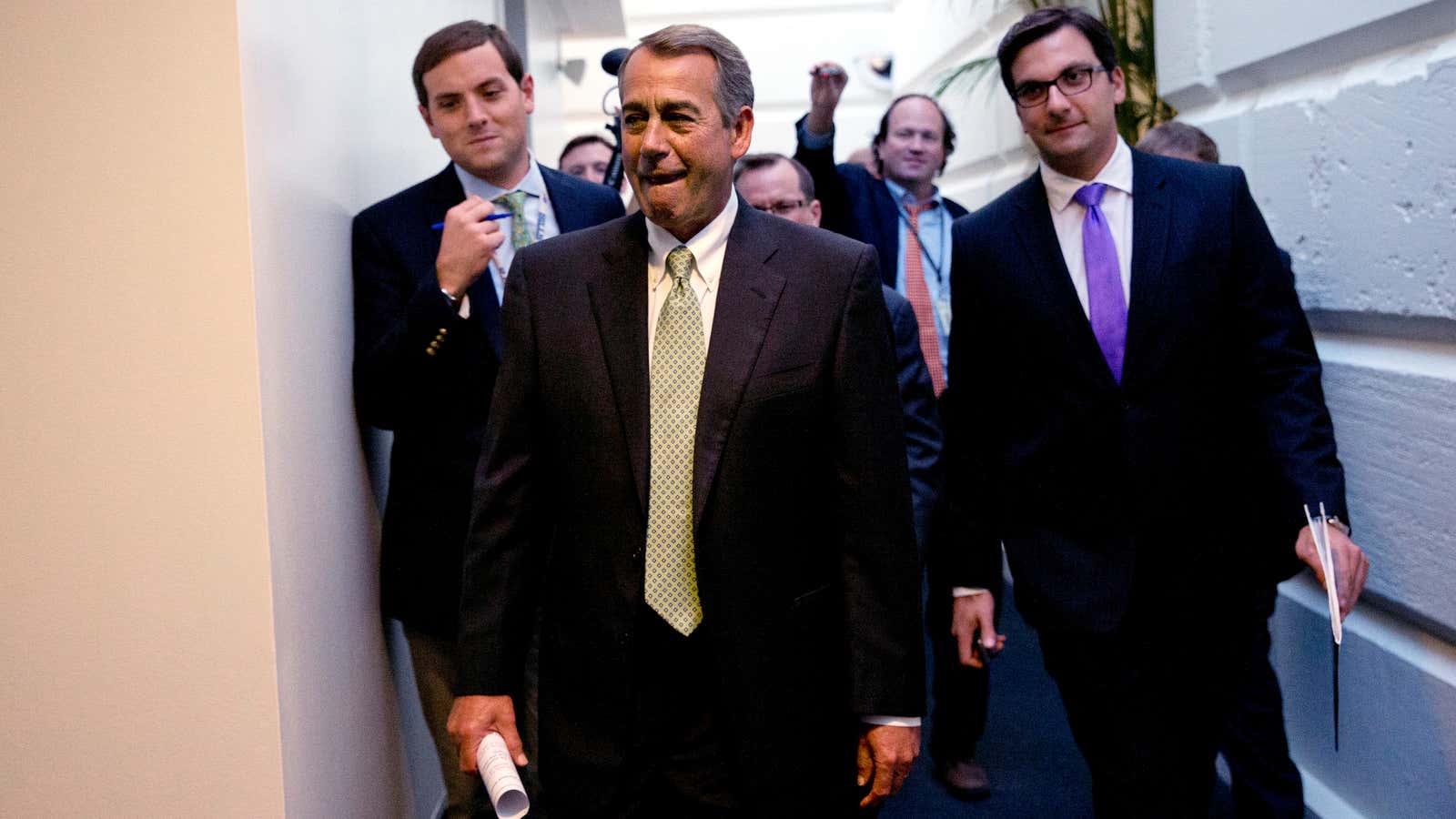In John Boehner’s final days as speaker of the House, lawmakers have reportedly struck a budget compromise to avoid both a government shutdown and a potential default on US debt.
The modest deal would lift government spending about 1%, funded with savings from cuts to Medicare and crop insurance, along with some classic revenue-raising gimmicks like sales from the strategic oil reserve (with prices so low, the US would be better off borrowing) and proceeds from radio-spectrum auctions.
More importantly, it would guarantee that the government would stay current on its debt payments for the next two years.
Also notable: While the deal doesn’t have the ambition of budget compromises contemplated in 2011 to decisively reduce US debt, it would be the first time since 2010 that lawmakers have come together to pass a budget without a drawn-out battle over ideological demands from House Republicans.
Boehner had a free hand negotiating this deal with the White House, Senate leaders, and the Democratic minority before bringing it to the floor, where it is expected to pass with a bipartisan vote. Previously, a bill that satisfied both parties would have been seen as a failure to toe the line drawn by about 40 ultra-conservative Republican lawmakers, who said holding such a vote would cost Boehner his job. With Boehner’s resignation already issued, it’s an empty threat.
His putative replacement, Wisconsin Republican Paul Ryan, is already saying that “the process stinks.” Ryan is a direct beneficiary of the deal, of course—Boehner has basically solved the biggest challenge of his new job for him—but he must use the moment to protect his standing with conservative representatives and organizations, who oppose the deal as a victory for Democrats, even though it hardly grants the spending the Democrats would like.
Indeed, some Democrats complain that further cuts to Medicare and reduced spending on the over-stressed Social Security Disability program are penny-wise and pound-foolish, putting public costs on the most vulnerable populations at a time when the US can borrow incredibly cheaply.
But bumps in national security spending, both directly to the Pentagon and to a fund for general overseas operations, are expected to attract defense hawks like Republican senator John McCain, who expressed basic support for the deal. Increases in domestic spending and the prospect of putting the budget to bed should attract enough Democratic votes to get it over the line.
Of course, nothing is final until it is final, and we’ve seen these compromises fall apart before. But if anything, the speed with which this deal came together underscores the key variable in Washington’s recent years of gridlock: Once the extreme right of the Republican party isn’t in control, it’s suddenly a lot easier to take the obvious compromise.
